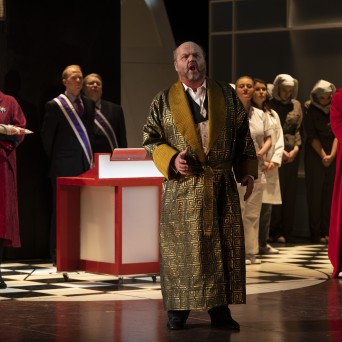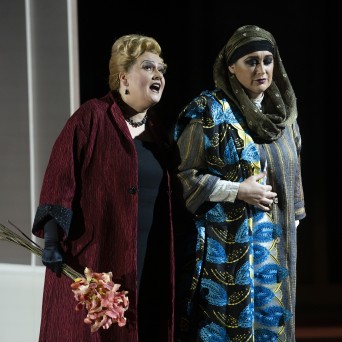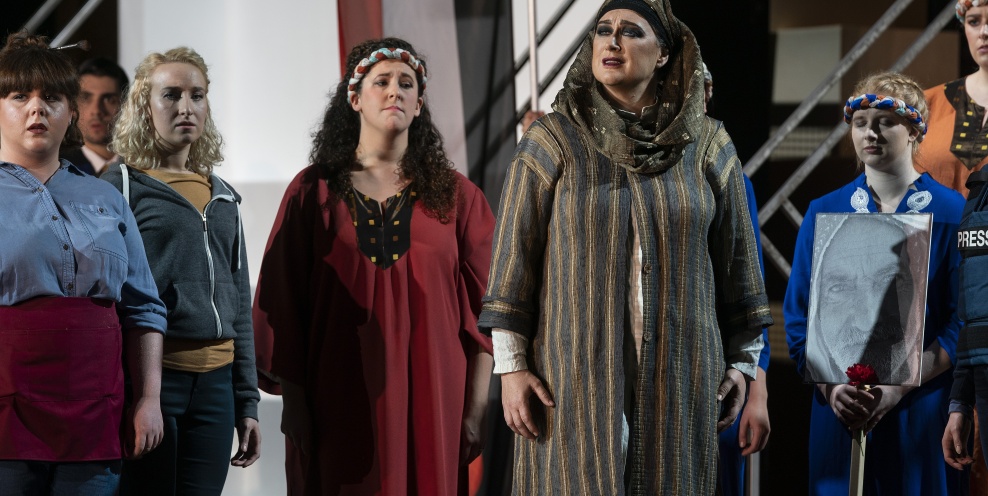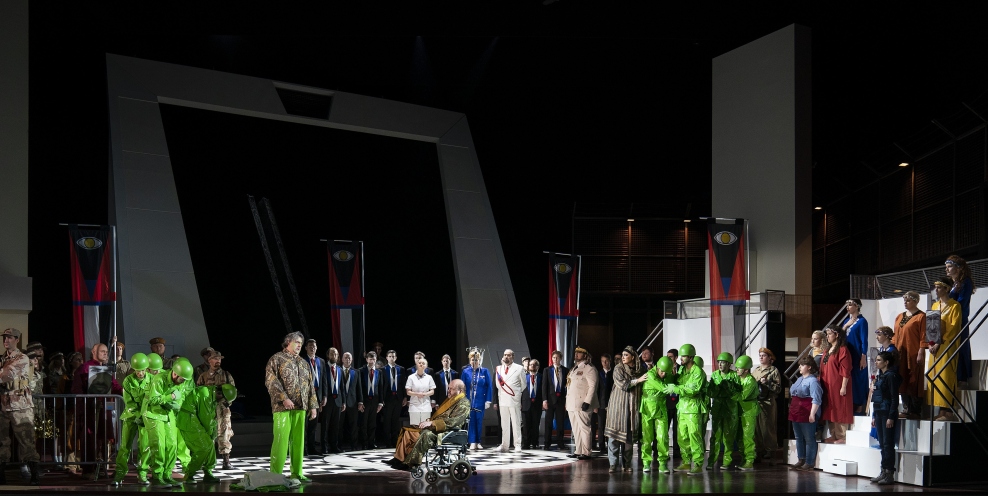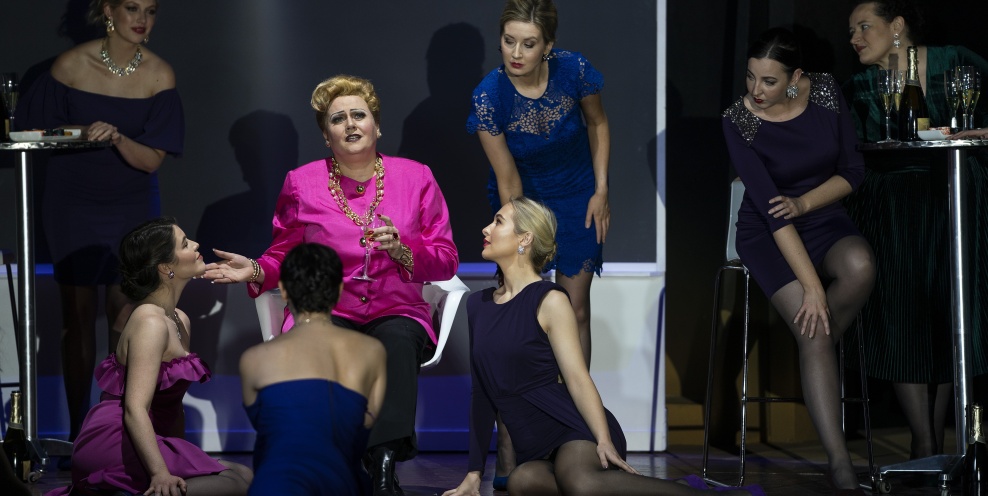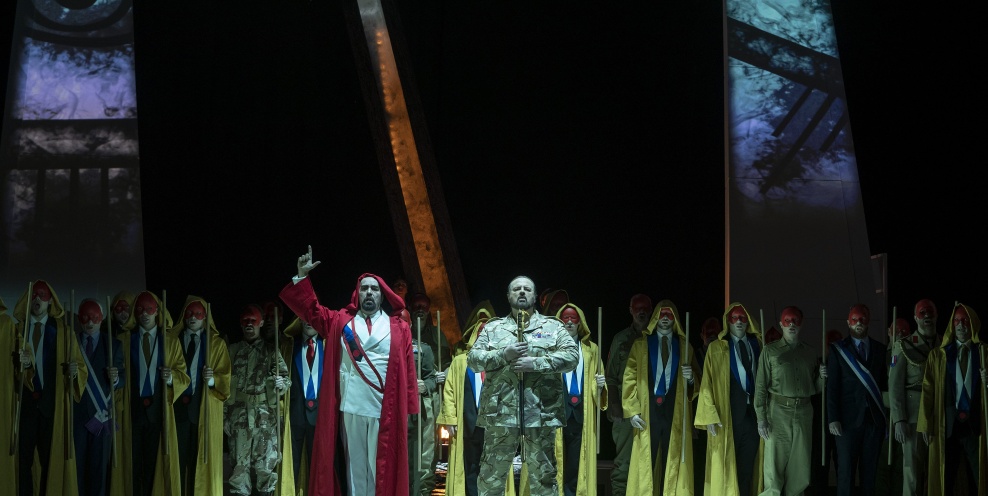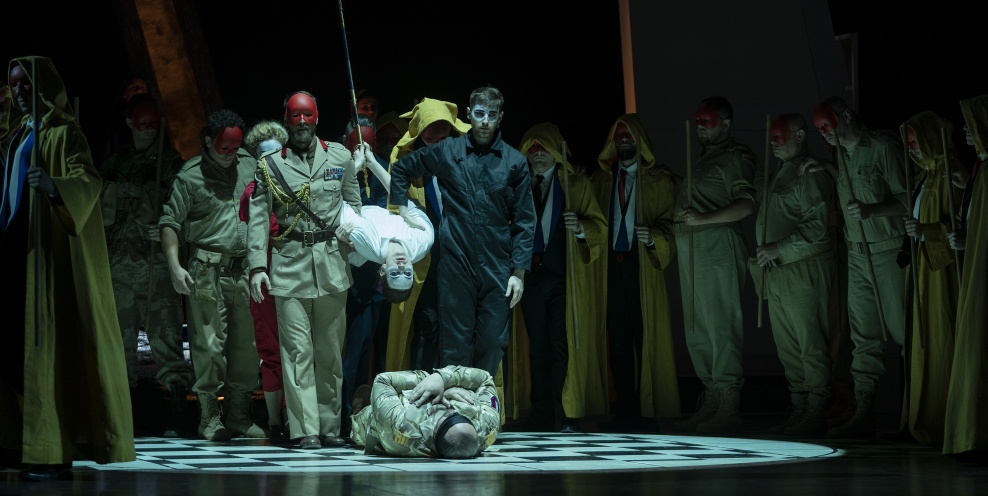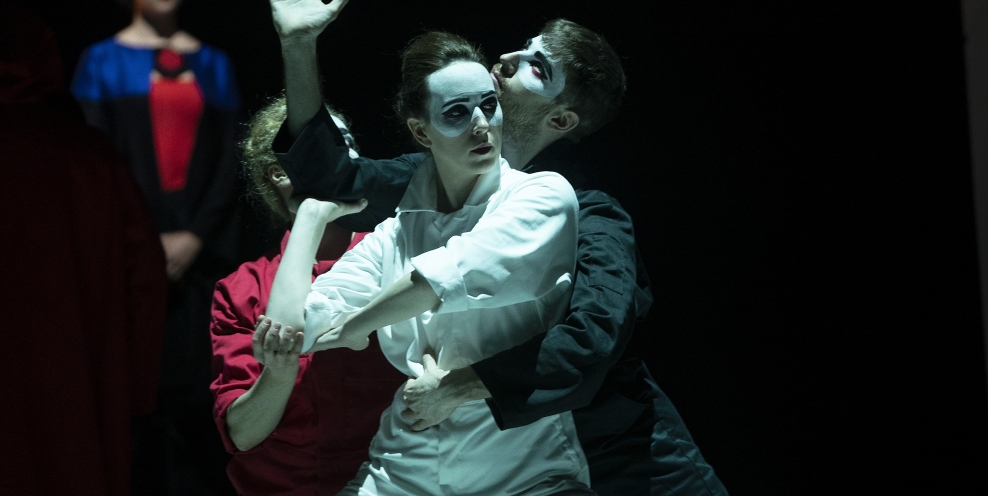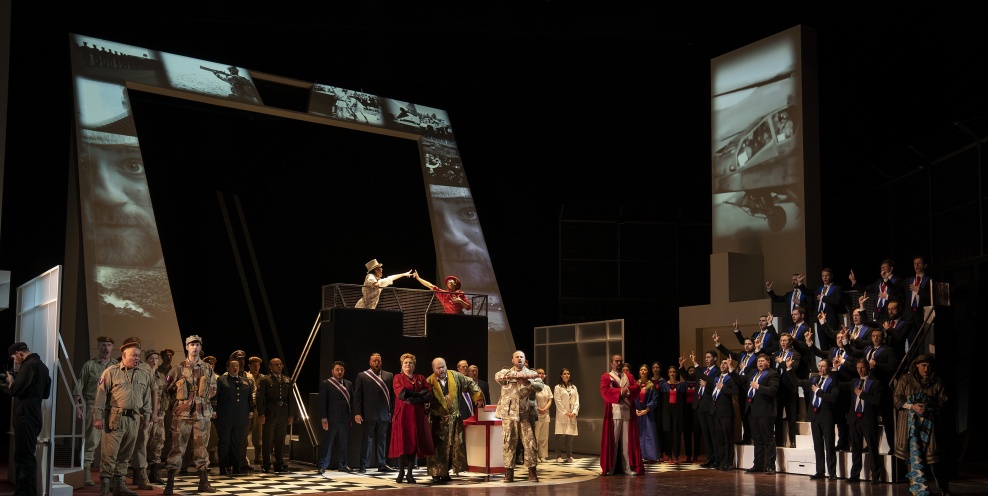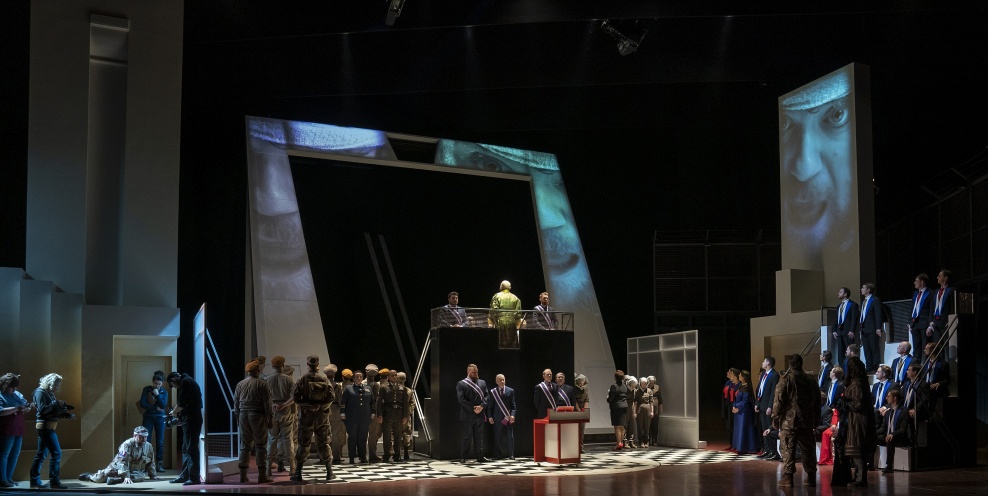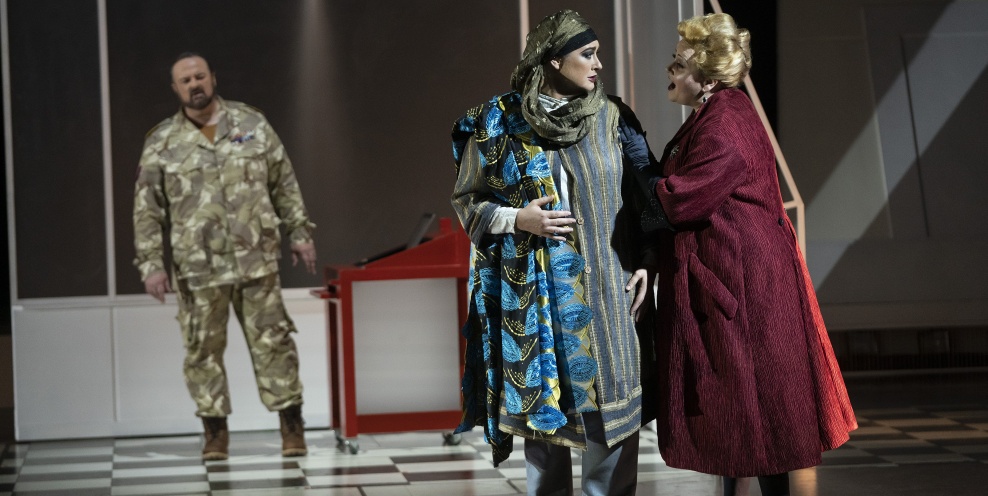Dates & Venues
| Saturday 24 Nov 2018 7:30pm |
Saturday 24 Nov 2018 7:30pm
Dublin
Bord Gáis Energy Theatre
|
|
| Tuesday 27 Nov 2018 7:30pm |
Tuesday 27 Nov 2018 7:30pm
Dublin
Bord Gáis Energy Theatre
|
|
| Thurday 29 Nov 2018 7:30pm |
Thurday 29 Nov 2018 7:30pm
Dublin
Bord Gáis Energy Theatre
|
|
| Saturday 1 Dec 2018 7:30pm |
Saturday 1 Dec 2018 7:30pm
Dublin
Bord Gáis Energy Theatre
|
Aida
Sung in Italian with English surtitles
Duration: 3 hours including one 20-minute interval after Act II
“It is a great show, a combination of scale and quality exceptional so far for opera in Ireland” - Bachtrack
“Orla Boylan… she is operating at full throttle‚ sailing above the stave and glorying in her power.” - The Telegraph
The enslaved princess. Her love for one of her oppressors. Her father ready to wage war. A dilemma both personal and political. All set during a large-scale conflict between Ethiopia and the Egypt of the Pharaohs.
Aida is the grandest of grand operas, celebrated for its visual and vocal spectacle. At its heart it is also a story of moving private struggles. Aida, an Ethiopian princess enslaved in Egypt, is torn between her love for Radames, Captain of the Egyptian Guard, and loyalty to her father, Amonasro. Her solution leads to betrayal and death.
“Orla Boylan… soared with fiery intensity.” - The Spectator
“Gwyn Hughes Jones as Radamès sings superbly, in an all-conquering voice, with enough honey in it for any love song.” - The Guardian
IN ASSOCIATION WITH BORD GÁIS ENERGY THEATRE
IN PARTNERSHIP WITH RTÉ CONCERT ORCHESTRA

Cast & Creative Team
Cast
| Aida | Orla Boylan |
| Aida | Monica Zanettin | 29 Nov |
| Radamès | Gwyn Hughes Jones |
| Radamès | Stefano La Colla | 27 & 29 Nov |
| Amneris | Imelda Drumm |
| Amonasro | Ivan Inverardi |
| Ramfis | Manfred Hemm |
| King of Egypt | Graeme Danby |
| High Priestess | Rachel Goode |
| Messenger | Conor Breen |
Creatives
| Conductor | Fergus Sheil |
| Director | Michael Barker-Caven |
| Set & Costume Designer | Joe Vaněk |
| Lighting Designer | Paul Keogan |
| Choreographer | Liz Roche |
| Assistant Conductor & Chorus Director | Sinead Hayes |
| Assistant Director | Davey Kelleher |
| Assistant Director | Sarah Baxter |
Synopsis
The opera’s three central characters, Aida, Radamès and Amneris, have complex personal and political bonds in a state where military power is subject to control by the priesthood. Their relationships blend a sleeping with the enemy scenario and a classic love triangle, with an outcome that shows how an individual’s failure to conform can threaten the entire edifice of the state.
Act I
The Egyptian general, Radamès, hears from the High Priest, Ramfis, that the Goddess Isis has named the man to lead the country’s army against the Ethiopians. Radamès hopes to be that new leader, and that his military victory will impress Aida, with whom he is in love. Aida, who reciprocates his love, is a slave who was captured in war and, unbeknownst to any of her captors, is the daughter of the Ethiopian King, Amonasro.
The fly in the ointment is the Egyptian princess Amneris. She is also in love with Radamès — but secretly — and is astute enough to suspect that Aida is her rival. She reads the truth in a look on Radamès’s face.
News arrives of a fresh attack by the Ethiopians with Amonasro leading the invasion. The King of Egypt names Radamès as the commander of the army. In the middle of the Egyptians’ surge of patriotic feeling Aida finds her conflict encapsulated in the collective war-cry, Ritorna vincitor! (Return victorious!).
Radamès goes to the temple for ritual benediction, to be consecrated for war.
Act II
Amneris is preparing herself for the victorious return of the Egyptian army. Alone with Aida, she adopts a friendly pose and deceives Aida into believing Radamès has been killed in battle. When she’s confronted with that, Aida breaks down. It’s the final straw. The one thing that kept her alive, her love for an enemy general, has been torn from her. Once Amneris knows she’s right, she reveals her determination to crush Aida.
Radamès is lionised on his return — the music includes the famous Triumphal March and a ballet. When the Ethiopian prisoners are paraded Aida recognises her father Amonasro, disguised as an officer. Amonasro spins a tale about his own death and seeks clemency for the captured Ethiopians. The priests want blood, the King and the crowd are sympathetic. In the face of Aida’s obvious distress Radamès adds his voice to ensure the success of the plea. Only Amonasro and Aida will continue to be held. The Egyptian king rewards Radamès with the hand of Amneris, and the celebrations continue.
Act III
It is the night before the marriage of Radamès and Amneris, and Amneris is praying for his love. Aida is distraught at the thought of never seeing her homeland again. She plans to meet Radamès but before they meet her father uses all his influence to get her to extract military plans from the Egyptian’s new hero. Amonasro hides and hears her do his bidding. When Radamès realises how he has been duped he is racked with shame and guilt. Amneris reappears with the high priest Ramfis and Amonasro attacks her. Radamès defends her, but, having done so, as Aida and her father escape, he surrenders.
Act IV
Aida is still on the loose, although her father was killed. Radamès is in his cell awaiting his fate, which is to be buried alive. Amneris want to intervene on his behalf, on the condition that he renounce Aida. He declares himself ready to die rather than do that. He will not defend himself at his trial. Amneris has a change of heart, finds a new love for Radamès as the sentence is announced and she confronts the fatal outcome of her jealousy.
Radamès is entombed, but he is not alone. Aida anticipated his fate and hid in the darkness. As the religious rituals are played out Aida and Radamès dream of the joy of an eternal reunion and Amneris prays for peace for Radamès. The lovers die in each other’s arms.


